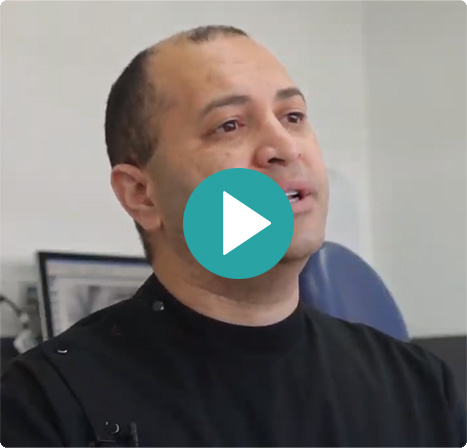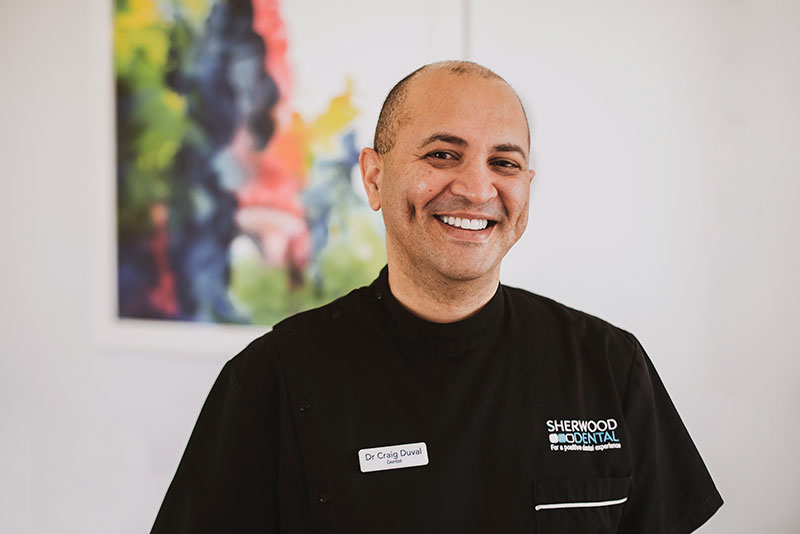Root Canal Therapy Sherwood
Explaining Root Canal Therapy
At Sherwood Dental Dr Craig Duval and our team of dental professionals take every step possible to help save your natural teeth and avoid tooth extraction. At Sherwood Dental we believe in providing a positive experience for our patients, which is why we take extra care educating our patients and caring for their needs first and foremost. A root canal therapy procedure is carried out when the innermost part of the tooth, otherwise known as the tooth’s ‘pulp’, becomes extensively decayed or infected. If left untreated, the decaying tooth can begin to die which can ultimately result in the loss of the tooth. In order to save the tooth, the infected pulp will often require removal to prevent the formation of an abscess. In dental terms root canal therapy is known as ‘endodontics’.
At Sherwood Dental we treat patients from Sherwood and surrounding suburbs including; Graceville, Rocklea, Indooroopilly, Chelmer and Oxley. At Sherwood Dental we treat patients like family, which is why we often see patients travel from surrounding suburbs.
Each of your teeth is made up of:
Enamel: The hard and protective outer layer of your tooth.
Dentine: This material forms the core of the tooth and establishes the basic shape of the tooth which will support the enamel. It is softer than enamel however it is also harder than bone.
Pulp: Is the central part of the tooth and extends down the root canal of the tooth. This material contains the nerves and blood vessels.

What can damage your tooth’s pulp
Caries: If caries, otherwise known as ‘decay’, are left the infection can travel through the enamel and dentine down into the tooth’s pulp chamber.
Trauma: A severe knock or trauma can damage the pulp.
Severe Gum Disease: In the event that the gum becomes diseased it can detach itself from the tooth, creating a gap between the tooth and the gum. If this occurs bacteria can then become trapped, causing an infection which can infect the pulp.
Identifying the symptoms when root canal is needed
Pain: This discomfort can be anything from a constant dull ache to severe pain or discomfort felt only when biting down. A spot can sometimes appear on the gum in the area around the infected tooth. This spot can indicate a collection of pus from the root tip which may be draining, this can result in a bad taste in your mouth. When booking your appointment, we encourage you to describe the level of pain with our friendly reception team, as they are trained to assess the urgency of your treatment.
Swelling of the gum surrounding your tooth: During your initial consultation our dental professionals will locate the tooth which is causing the discomfort and perform an x-ray in order to show the roots of the tooth. This x-ray can help us identify how far the decay may have travelled down your tooth’s root canal and if there is an abscess present. A course of antibiotics may be given to clear the abscess before the treatment is started as the abscess can reoccur if the treatment is not carried out swiftly.
During your first appointment
Dr Duval and our team of dental professionals will administer you with a local anaesthetic to numb the damaged and painful tooth and the area surrounding it. Your tooth will then be isolated from the surrounding teeth using a ‘rubber dam’ which is a thin sheet of rubber placed over your teeth. This device is used to keep the damaged tooth dry as saliva has bacteria present which can further infect the tooth. It is also used to protect your airway and safeguard your wellbeing as the instruments used to clean the tooth’s canals can be very small.
Dr Duval will need to gain access to the pulp chamber, this can be achieved by drilling a hole in the top of your tooth. Once access to the pulp chamber has been gained the dead pulp will be removed from the root canals using a very small file and a specialised hydrochloric wash. An additional x-ray will normally be taken at this point.
Once the infected root canals have been cleaned our dental professionals will then place a specialised medication to help ensure that any remaining bacteria is cleared. The tooth will then be filled with a composite material, permitting the decay was not extensive enough to require two appointments. The tooth may feel tender for the following few days and you may require the use of pain killers from the chemist.
What happens if you require a second appointment
If you require a second appointment, once you arrive you will then be given a local anaesthetic to the numb tooth and the surrounding tissue in order to receive the next treatment step. The rubber dam will then again be placed and we will remove you temporary filling.
Dr Duval will then continue to clean out the infected canals using the same process as mentioned above. Once the tooth’s canals are clean and dry they will be filled with a dental material called ‘Gutta Percha’ which will be placed into the root canal until it is sealed. An X-ray will then normally be taken in order to check that the canals have been filled completely. A permanent composite filling will then be placed in the space left behind by the removed tooth marital.
We may advise you to have a crown placed on the tooth to strengthen it if the damage from the infection is quite extensive. Despite this, your initial consultation should indicate the degree of your tooth decay, so if you should require a crown you will normally advised prior to your treatment here at our Sherwood practice.
Ask Dr Craig Duval
Our friendly team is here to help!

